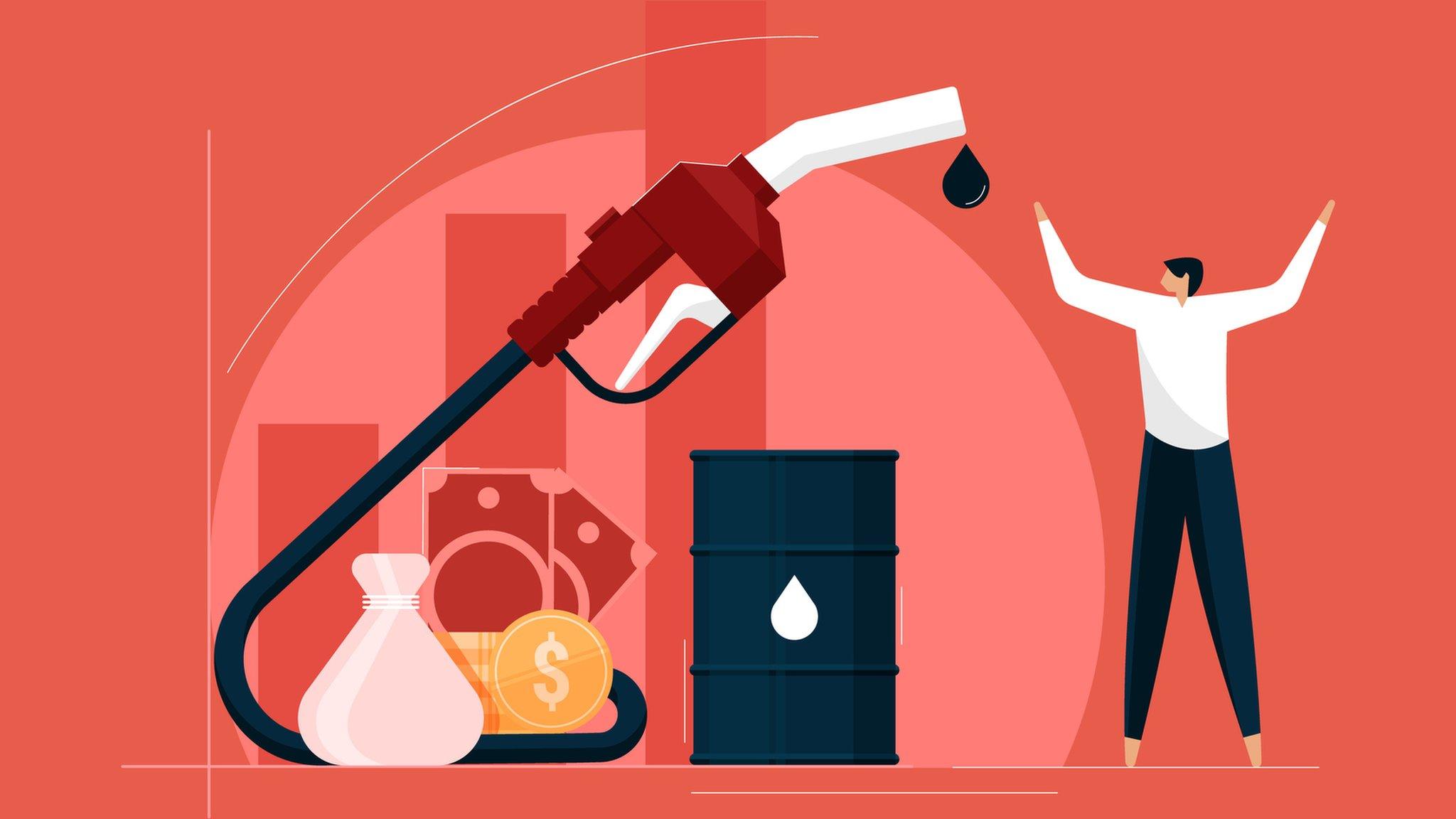Energy crisis: What do all the words mean?
- Published
- comments
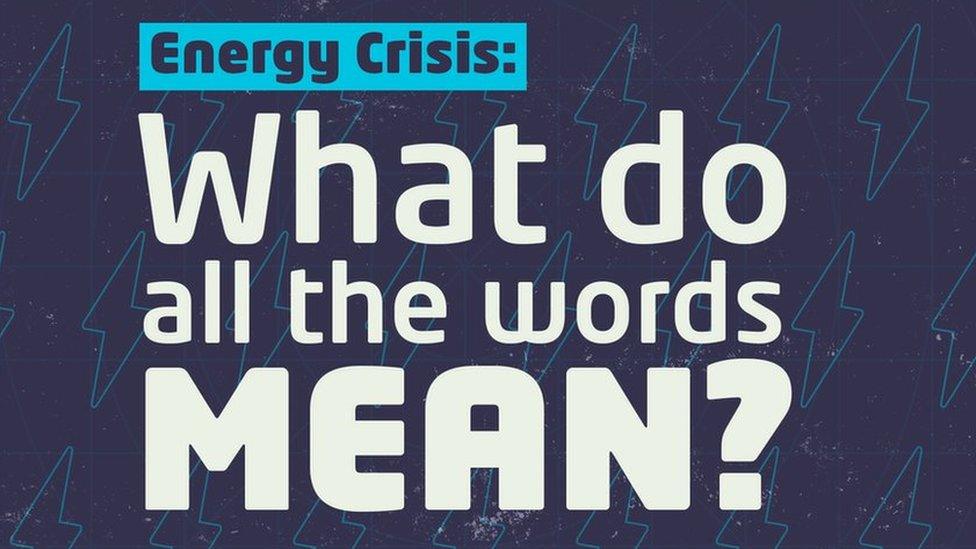
You may have heard words or phrases in the news like 'cost of living' or 'energy crisis' a lot lately.
That's because the cost of everyday things are going up, and for millions of people across the UK that includes things like heating homes or putting the lights on.
Whether you're listening to adults talking about the situation or you're keeping updated via Newsround, you might be coming across a lot of new words or phrases that you haven't heard before.
So, here's some of the key terms and what they really mean.
If there are other complicated words relating to the energy crisis and you want to know what they mean, let us know in the comments below.
Bill
A bill is a statement of how much money is owed for goods or a service you've received.
Energy bills include how much gas, electricity or a combination of both has been used and the amount that needs to be paid for using that amount of energy.
Consumer
A person or a group who buys products, or services for themselves. For example - someone who buys a chocolate bar from the shop is a consumer.
Cost of living
Ricky finds out more about the cost of living crisis
The cost of living is the amount of money that a person needs to buy food, clothing, heat their home or other basic things. At the moment the cost of living is going up, which means it's more difficult for some grown-ups to afford certain things.

Energy
Energy is used in homes for things like heating, cooking and the use of appliances such as televisions. Electricity and natural gas are the most-used energy sources in UK homes.
Energy regulator
Ofgem is the energy regulator in Great Britain and they decide how much energy companies can charge.
Northern Ireland has a separate regulator called NIAUR (The Northern Ireland Authority for Utility Regulation), responsible for regulating the electricity, gas, water and sewerage industries there.
Economy
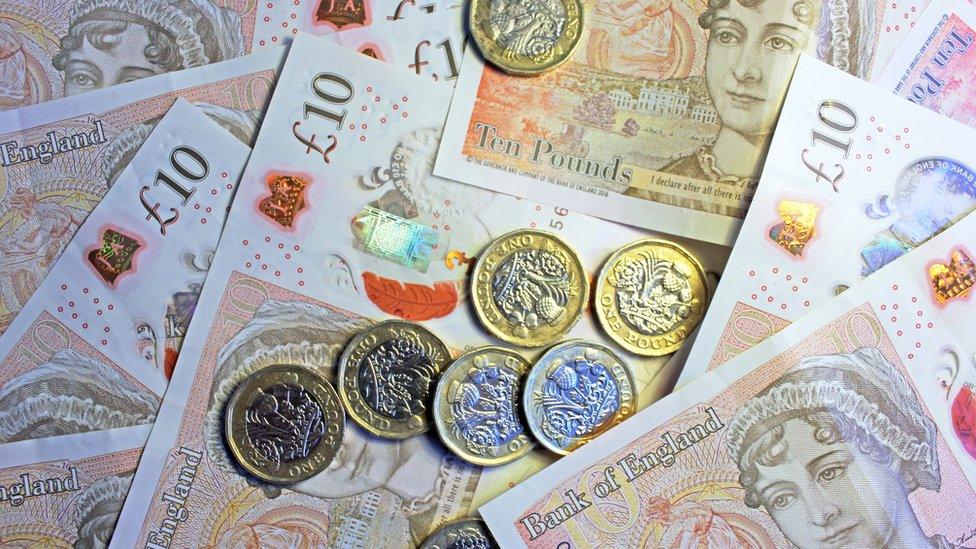
The economy involves making and buying products. You may have heard people refer to the economy, which often means a specific country's economy.
A good economy is generally one where there are lots of good-paying jobs, and businesses are selling things and making money. A bad economy is one where people are losing jobs, can't afford things and businesses are struggling to make money.
Electricity
Electricity is used to power things in homes and is created by generators which can be powered by fossil fuels such as gas, coal, oil, or renewable energy such as wind, water or solar power.
Gas
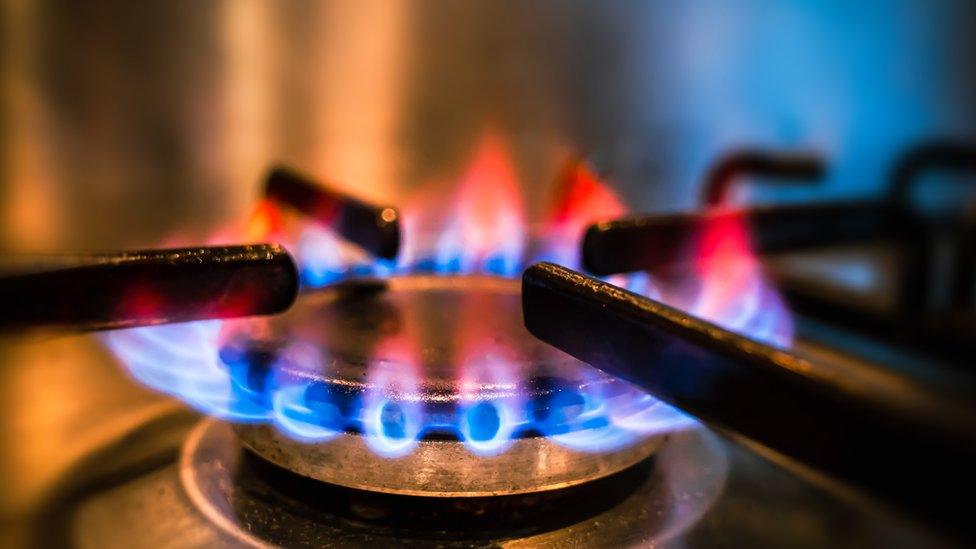
Gas is a type of energy used inside homes and businesses for things like heating and cooking. The UK gets more than a third (42%) of its energy from burning natural gas.
There are a number of reasons for the cost of gas going up, for example an increase in demand for energy with businesses reopening following the Covid-19 pandemic.
Another reason is the war is Ukraine. Since many countries are no longer using gas supplied by Russia, there is greater demand and a higher cost for gas supplied from other places.
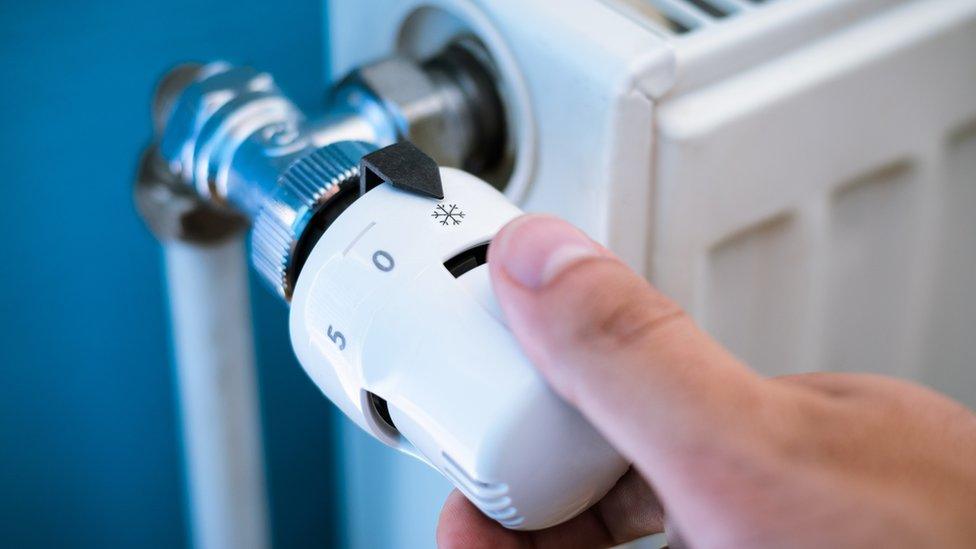
Inflation
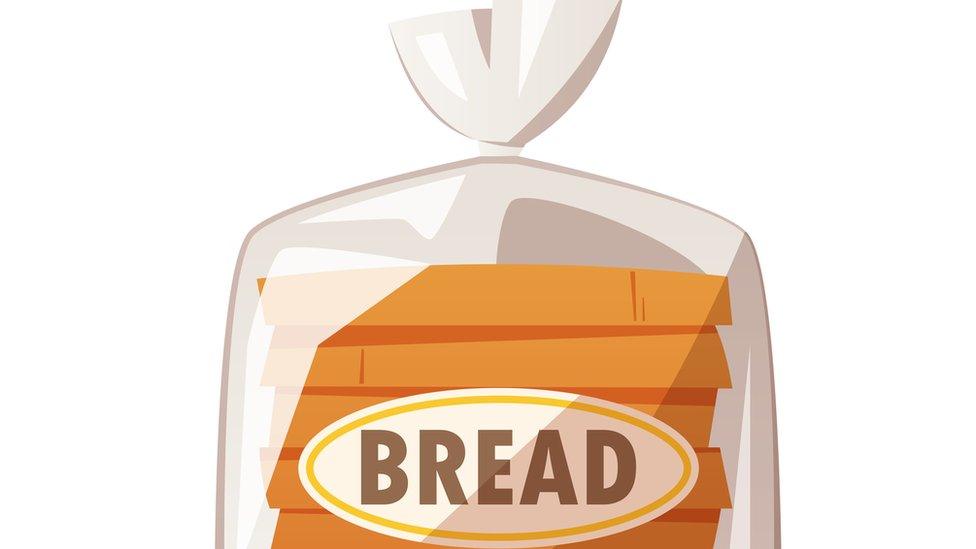
Inflation can mean the cost of things like food can go up
Inflation is a change in the value of products - meaning they cost more.
It also means that money people have earned or saved has less value, because with prices going up, it's more expensive to buy items such as food.
Pre-paid meter
This is a way that some adults pay for a certain amount of gas or electricity in advance before they have actually used it.
It's a bit like having a pay-as-you-go mobile phone, with a certain amount paid for until it runs out and needs to be topped up.
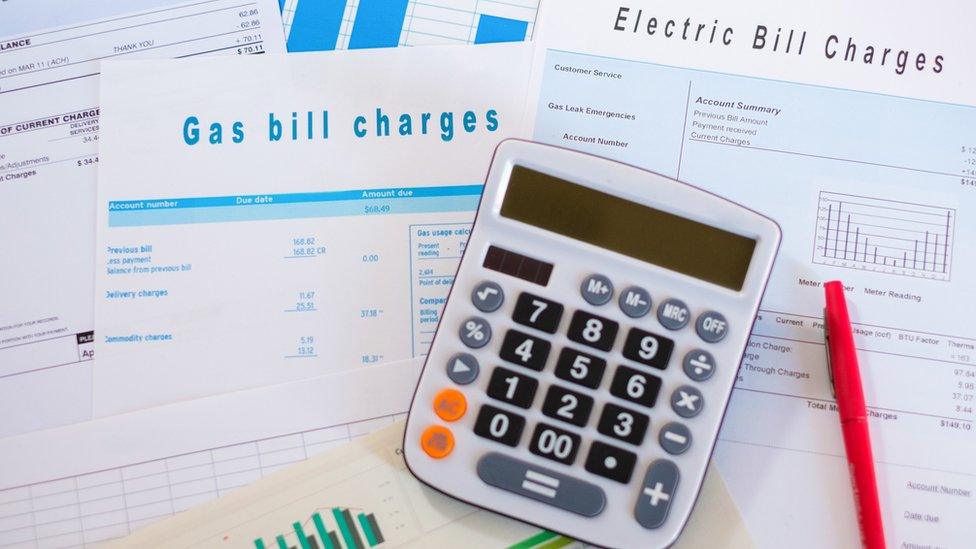
Price cap
The price cap is the maximum amount that energy companies can charge for the use of gas and electricity.
Ofgem has announced a rise of 80% on the current energy price cap, that means energy companies can charge more and the average yearly cost for homes will rise to £3,549 from October.
In Northern Ireland the market is regulated differently from the rest of the UK. Instead of setting a price cap for all the energy companies together the regulator looks at what each company individually wants to charge, and either says yes or no.
Taxes
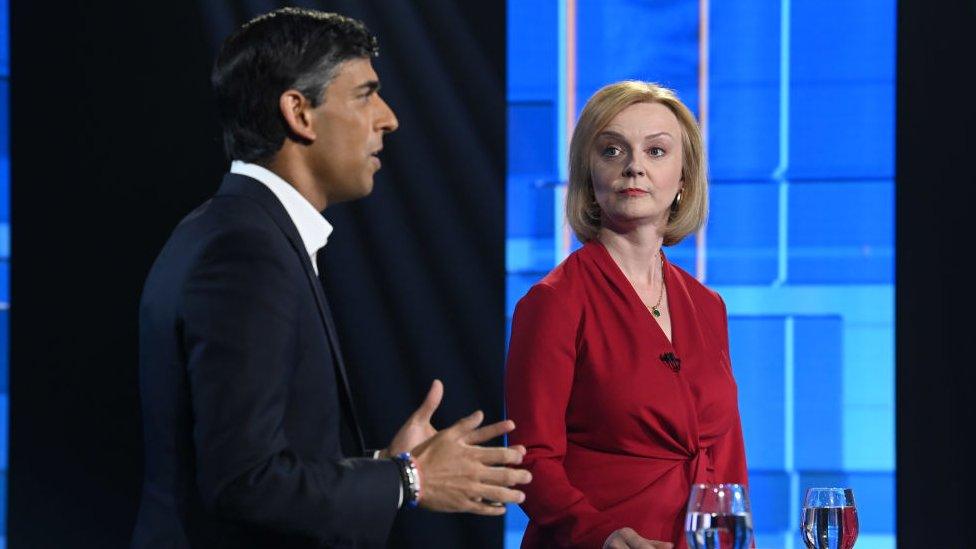
Both Rishi Sunak and Liz Truss have promised tax cuts if they become prime minister
VAT, or value added tax, is an extra charge added to many of the goods we buy as well as for certain services.
In the UK, VAT mainly adds an extra 20 percent charge on to the cost of things, and this extra money goes straight to the government.
Taxes are one way the government can raise money to pay for things.
These include income tax and value added tax (VAT).
- Published26 May 2023
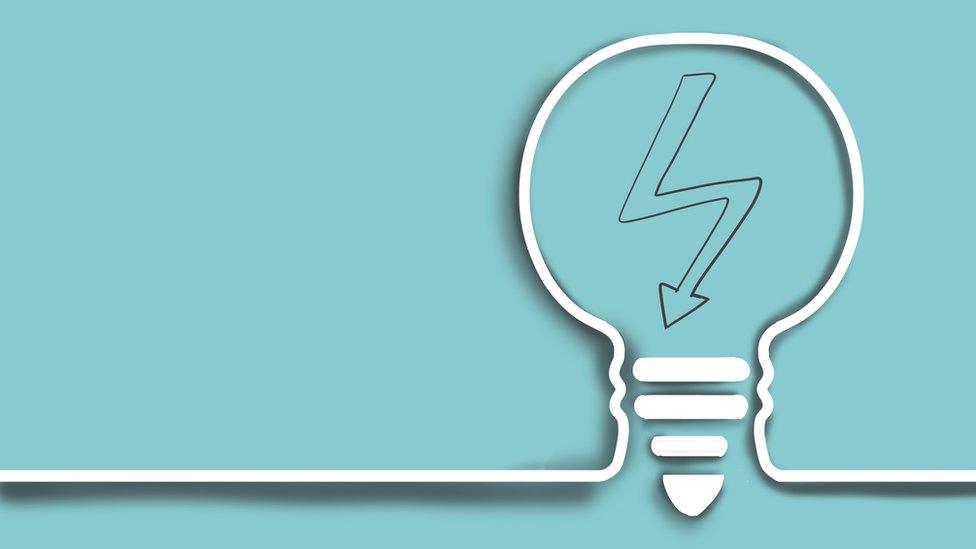
- Published26 August 2022
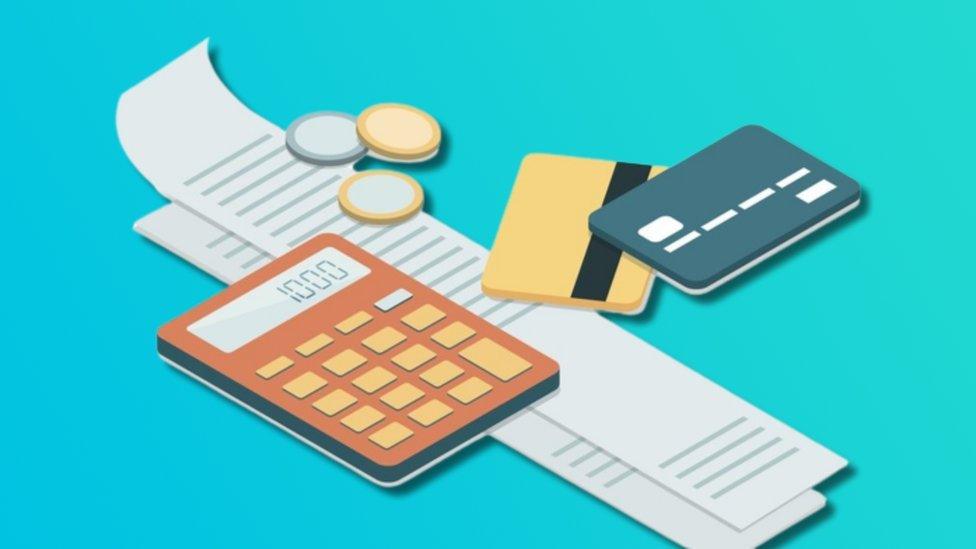
- Published15 November 2023
